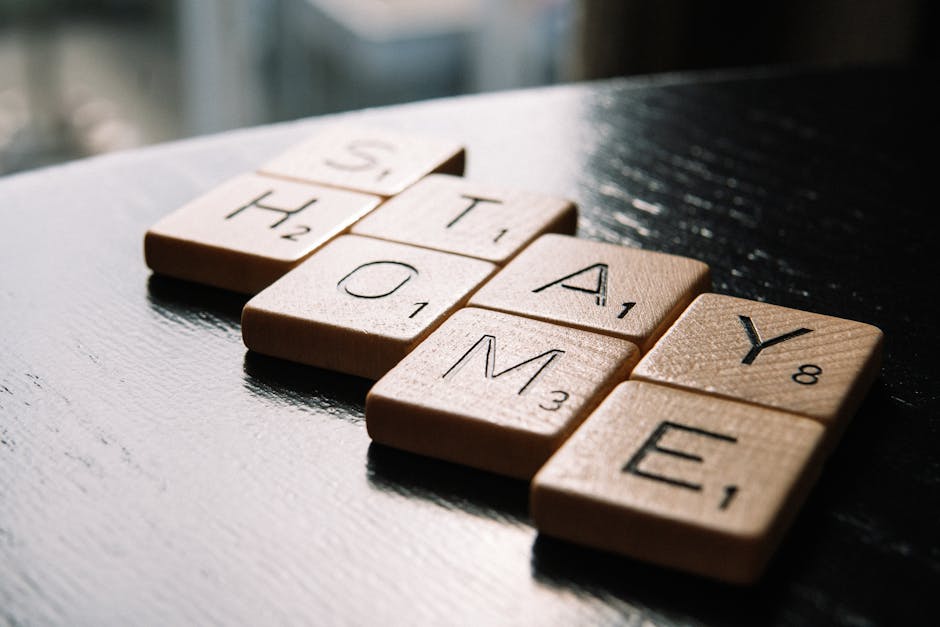Sure, let’s dive into the fascinating world of self-awareness and explore some effective techniques to enhance it. Self-awareness is the cornerstone of personal growth and success, and the good news is, it’s a skill that can be developed with practice. So, why should you keep reading? Because understanding and improving your self-awareness can lead to significant improvements in your personal and professional life.
Key Takeaways
- Understanding the concept and importance of self-awareness
- Recognizing the different aspects of self-awareness
- Identifying common barriers to self-awareness
- Learning practical techniques for enhancing self-awareness
- Overcoming discomfort in self-discovery
Introduction to Self-Awareness
Definition of Self-Awareness
Self-awareness is the conscious knowledge of one’s own character, feelings, motives, and desires. It’s like holding a mirror up to your psyche, allowing you to understand your thoughts, emotions, and behaviors more clearly.
Importance of Enhancing Self-Awareness
Personal growth
Enhancing self-awareness is crucial for personal growth. It allows you to understand your strengths, weaknesses, and potential areas for improvement.
Improved relationships
Self-awareness can also lead to improved relationships. By understanding your own emotions and reactions, you can better empathize with others and manage interpersonal dynamics more effectively.
Better decision-making
Finally, self-awareness can lead to better decision-making. By understanding your values and motivations, you can make choices that align with your true self.

Understanding Different Aspects of Self-Awareness
Internal Self-Awareness
Recognizing personal values and aspirations
Internal self-awareness involves recognizing your personal values and aspirations. It’s about understanding what truly matters to you and what you want to achieve in life.
Understanding personal strengths and weaknesses
It also involves understanding your personal strengths and weaknesses. This can help you leverage your strengths and work on your weaknesses to achieve your goals.
External Self-Awareness
Perception of how others view you
External self-awareness, on the other hand, involves understanding how others perceive you. This can help you manage your personal and professional relationships more effectively.
Aligning self-perception with external feedback
It also involves aligning your self-perception with external feedback. This can help you improve your behavior and communication skills.

Common Barriers to Self-Awareness
Psychological Defenses
Denial
One common barrier to self-awareness is denial. This is when you refuse to acknowledge certain aspects of your reality because they are uncomfortable or painful to accept.
Rationalization
Another common barrier is rationalization. This is when you justify your behaviors or feelings in a way that avoids the true reasons behind them.
Blind Spots
Incomplete picture of one’s behavior
Blind spots can also hinder self-awareness. These are areas where you have an incomplete picture of your behavior or personality.
Difficulty in recognizing personal flaws
Another common blind spot is difficulty in recognizing personal flaws. This can prevent you from making necessary changes for personal growth.

Practical Techniques for Enhancing Self-Awareness
Journaling
Setting aside time for daily reflection
One effective technique for enhancing self-awareness is journaling. This involves setting aside time each day to reflect on your thoughts, feelings, and behaviors.
Writing about thoughts, feelings, and behaviors
Writing about your thoughts, feelings, and behaviors can help you gain a deeper understanding of yourself. It can also help you identify patterns and triggers that you may not have been aware of.
Mindfulness Practices
Engaging in meditation
Mindfulness practices, such as meditation, can also enhance self-awareness. Meditation involves focusing on the present moment and observing your thoughts and feelings without judgment.
Focusing on the present moment
Focusing on the present moment can help you become more aware of your internal state and how it influences your behavior.
Seeking Feedback
Asking for others’ perspectives
Another effective technique is seeking feedback from others. This can provide valuable insights into how others perceive you and how you can improve.
Handling constructive criticism
Learning to handle constructive criticism is also important. This can help you accept and learn from feedback without becoming defensive.
Self-Assessment Tools
Using tools to evaluate personal and professional traits
Self-assessment tools can also be useful for enhancing self-awareness. These tools can help you evaluate your personal and professional traits and understand yourself better.
Analyzing results to understand self-better
Analyzing the results of these assessments can provide valuable insights into your personality, strengths, weaknesses, and potential areas for growth.
Overcoming Discomfort in Self-Discovery
Confronting Uncomfortable Truths
Acknowledging personal flaws
Part of enhancing self-awareness involves confronting uncomfortable truths about yourself. This includes acknowledging your personal flaws and areas for improvement.
Embracing vulnerability
Embracing vulnerability is also important. This involves accepting that you are not perfect and being open to growth and change.
Continuous Improvement
Making incremental changes based on self-awareness
Once you have enhanced your self-awareness, the next step is to use this knowledge to make incremental changes in your life.
Monitoring progress and adjusting strategies
Monitoring your progress and adjusting your strategies as needed can help you achieve your personal and professional goals.
In conclusion, enhancing self-awareness is a lifelong journey, but it’s one that can lead to significant personal growth and success. So, why not start your journey today?
For more insights on self-improvement, check out our other posts on positive self-talk, cultivating self-compassion, and the impact of positive affirmations on self-esteem.
Sources:
– PsychCentral
– Business News Daily
– Positive Psychology
Unlocking Your Inner Self: Techniques For Enhancing Self-awareness FAQ
What is self-awareness and why is it important?
Self-awareness is the conscious knowledge of one’s own character, feelings, motives, and desires. It’s important because it serves as the foundation for personal growth and improvement. By understanding ourselves, we can make informed decisions, manage our emotions better, and understand how we relate to others. It enhances our empathy, confidence, and effectiveness in both personal and professional life.
How can journaling help increase self-awareness?
Journaling is a powerful tool for enhancing self-awareness because it encourages you to articulate thoughts, feelings, and behaviors. Writing down your experiences helps you to reflect on your actions and decisions, identify patterns or habits, and consider areas for personal growth. It can also serve as a therapeutic tool to process emotions and reduce stress.
Can meditation improve self-awareness?
Absolutely. Meditation is a practice that involves focusing your mind on a particular object, thought, or activity to train attention and awareness. It helps in improving self-awareness by quieting the mind and allowing you to become more aware of your thoughts and feelings without judgment. Regular meditation can lead to a deeper understanding of yourself and a more mindful approach to life.
What role does feedback from others play in self-awareness?
Feedback from others is crucial for self-awareness. It provides an external perspective on your behavior, attitudes, and interactions. Constructive feedback can reveal blind spots in your self-perception and help you understand how you are perceived by others. This insight is valuable for personal development and improving relationships.
How can setting personal goals enhance self-awareness?
Setting personal goals helps enhance self-awareness by clarifying your values, priorities, and what you truly want to achieve in life. It forces you to reflect on your desires, strengths, and areas for improvement. Achieving goals provides a sense of accomplishment and feedback on your abilities, while setbacks offer insights into areas that may need more attention or a different approach.
Is there a connection between physical exercise and self-awareness?
Yes, there is a strong connection between physical exercise and self-awareness. Exercise not only benefits your physical health but also promotes mental well-being. It can increase self-awareness by improving mood, reducing stress, and enhancing cognitive function. Physical activities, especially those requiring concentration and skill, can foster a greater connection between mind and body.
How do mindfulness practices enhance self-awareness?
Mindfulness practices, such as mindful breathing or walking, enhance self-awareness by bringing your attention to the present moment. This focus on the here and now helps you become more aware of your thoughts, feelings, and bodily sensations without judgment. Over time, mindfulness increases your ability to recognize and manage your emotional states, leading to greater self-control and emotional intelligence.
Can reading books improve self-awareness?
Reading books, especially those related to personal development, psychology, or philosophy, can significantly improve self-awareness. They provide insights into human behavior, thought processes, and emotions, offering new perspectives on your own experiences. Reading can also stimulate self-reflection, empathy, and understanding of others, contributing to a deeper sense of self-awareness.



